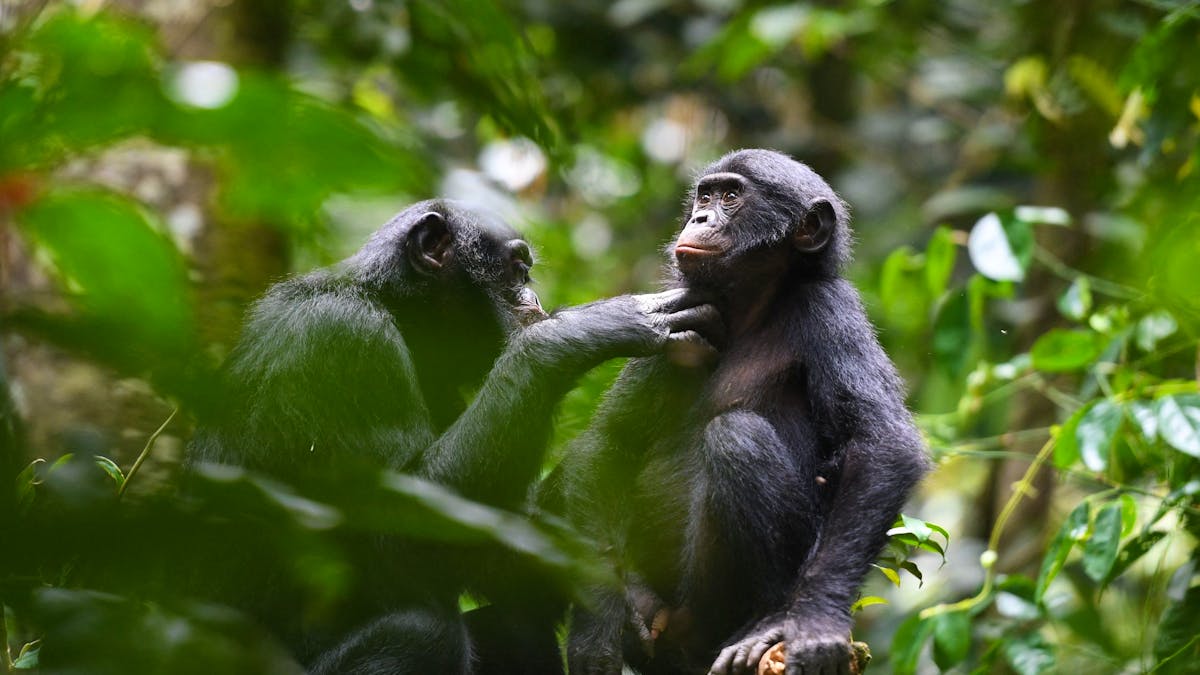They have less strength than males and yet bonobos females have a higher social status in these primates communities, which a new study explains by their ability to form coalitions.
With the chimpanzees, bonobos are our closest cousins in the prime order. But they “distinguish themselves from all the other species of great apes by the fact that females occupy a high rank in their community”, recalls the study published Thursday in “Nature Communications Biology”.
As proof, it is the females “who decide when and with whom to mate”, describes a press release from the Max Planck Institute on animal behavior, to which is affiliated a supervisor of the study, Barbara Fruth. They are also the one who has priority to access the most popular foods, “while the males hang out in the trees while waiting for their turn”.
Male however much more strong
However, a marked sexual dimorphism provides a physical advantage to males, which explains for example the undisputed domination of the latter in chimpanzees.
The study questions the mechanism of evolution leading females to largely dominate a group, “a rare phenomenon in social animals”, and specific to certain species. Like spotted hyenas, where females have the same dimension, and the same force, as males.
Several hypotheses could explain the phenomenon, but “none had been tested in wild bonobos living in their jungle”, according to Barbara Fruth.
An international team of researchers searched, under the supervision of Martin Surbeck at the University of Harvard, thirty years of data collected on six bonobos communities of the Democratic Republic of Congo, their only country of wild housing. With the result that as much as we know, it is the first proof that solidarity between females can reverse the structure of power promoting males, which characterizes many communities of mammals, according to Martin Surbeck, quoted in the press release.
By studying nearly 1,800 conflict situations, more than half of which was won by females, they dismissed two hypotheses. That of self-organization, where a high proportion of males leads to a large number of conflicts between them, which leaves a space to females to assert themselves. And that of control over reproduction, where the absence of external signs of the fertility period of a female encourages males to fold it down.
There remained that of the coalition, already episodically described in communities of Bonobos, where the females are giving up against a male assaulting one of their fellows or his little one. A situation “which is not the rule”, according to Barbara Fruth, but which makes that “females benefit from high status rather than undisputed domination”.
They give voice
Status that they can defend fiercely, first with concerts of howling so powerful that we are going to get your ears, according to the researcher. And if necessary, a real prosecution of the male deemed faulty, with a correction whose consequences can be fatal.
This coalition, which is formed in a few seconds, is sufficiently dissuasive so that the males “does not try to go beyond the limits”, according to Barbara Fruth.
It is all the more surprising since in bonobos, it is the females that most often migrate from one community to another. This excludes the explanation for training bands linked by the same origin.

